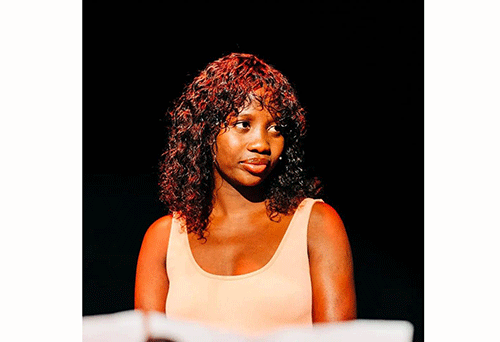Loide Elzaan Nampala
WHEN trending pops up in our minds as Namibians, the first questions that come to mind are … What’s new in music, fashion, and technology? What are people up to now?
We run to social media or grab a newspaper. At the back of our minds, we expect to see the usual things … a new TikTok challenge or a new business idea that can make us rich, or who’s talking about who.
Yes, our thoughts may focus on these more frivolous topics, but there is a serious trend – the frequency of suicide. According to government figures, Namibia recorded 512 cases of suicide in the year 2020, 496 in 2021, and 510 in 2022. That averages nearly 10 deaths per 100 000 people, making Namibia a country with one of the highest rates of suicide in Africa.
Suicide is often a symptom of depression or mental health and lifestyle factors, including loneliness, anxiety, or alcohol and drug use/abuse.
Mental health is defined as the state in which an individual realises his or her own abilities, can cope with the normal stresses of life, can work productively and fruitfully, and is able to make a contribution to his or her family and community.
Well-being is a broader psychological, emotional, social and economic construct that encompasses mental health, but recognises the need for a holistic approach to wellness. Mental health and well-being occur on a continuum, from feeling completely well to feeling distressed to the point of experiencing a diagnosable mental health condition, which may include thoughts of committing suicide.
Our mind is the mechanic in the centre of our lives where everything starts, keeping things in life running smoothly. It can either build resilience and strength or break you. We can learn lessons from the challenges we encounter in life, or they can cause turmoil, drama, and sometimes isolation. We need to be aware of when we are in distress and seek assistance. Equally, we should be sensitive to friends and family around us and constantly look for warning signs for someone being in crisis and possibly considering suicide as a way out. Everyone experiences mental health challenges to some degree in life. We should make it a habit to examine ourselves and the way we react to emotions and feelings, and if we experience unusual emotions, thoughts, and feelings, we should take action and access free services offered by the government and NGOs to get help/treatment. Living according to society’s expectations and the stigma attached to mental health issues can be overwhelming and a deterrent from seeking help. The mind needs care and nurturing, just like our body. Seeking help can truly help in problem-solving and improve our overall quality of life.
To go through mental health challenges and cope with thoughts of suicide is complex, lonely, and not easy. As community members and family, let’s not throw shame and judge those in need. Let’s be that friend and family member who takes another’s hand and says ‘I am here to support you. I am here to walk this journey with you’.
If you are experiencing thoughts of suicide, reach out to a professional, friend or family member. If you are aware of anyone whose behaviour has changed radically and they may be experiencing suicidal thoughts, reach out to them with caring and empathy, and assist the individual to find professional help.
For assistance contact: Mental Health Clinic – 061 203 3321 or Lifeline/Childline Help Line – 116.
* Loide Elzaan Nampala is the information and publicity officer of the Namibian Mental Health Association.


